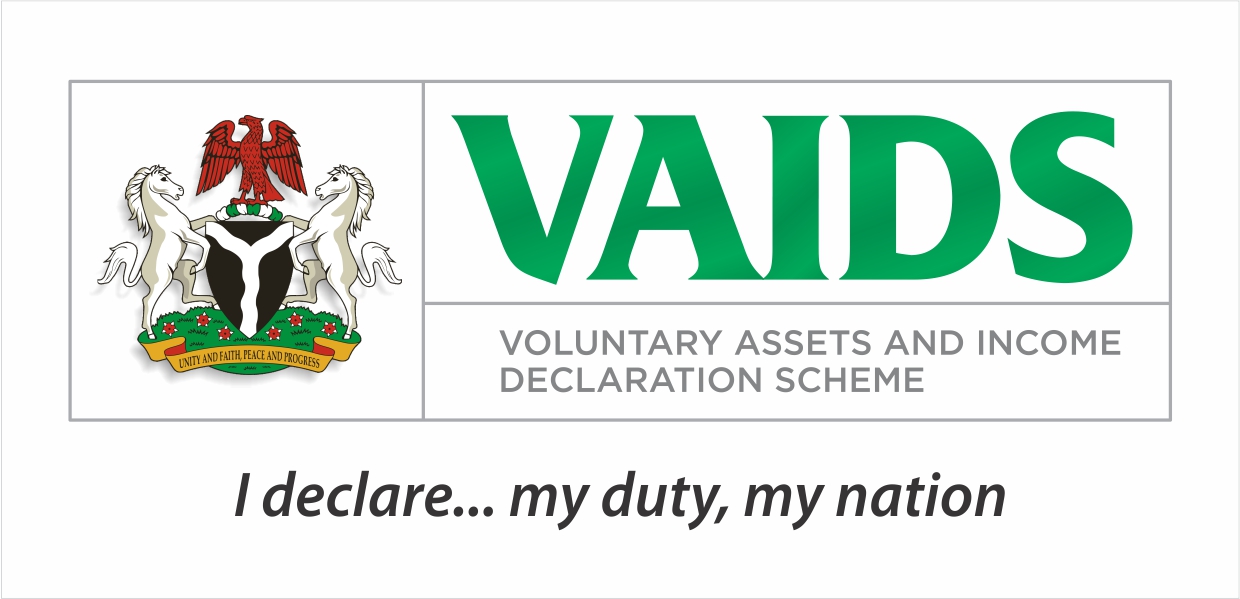- VAIDS: Politicians, High Profile Individuals Lobby FG for Extension
With less than three weeks to the expiry of the Voluntary Asset and Income Declaration Scheme, pressure is beginning to mount on the Federal Government to extend the tax amnesty programme.
Investigations by our correspondent revealed that some former governors, top politicians, high profile individuals, business owners and professional bodies were among those seeking an extension of the scheme.
The VAIDS offers a grace period from July 1, 2017 to March 31, 2018 for tax defaulters to voluntarily pay back to the government what they owe.
In exchange for full and honest declaration, the government promises to waive penalties that should have been levied and the interest that should have been paid on overdue taxes.
Also, those who declare their tax obligations honestly will not be subjected to any investigation or tax audit after the nine-month grace period.
But sources in government confided in our correspondent on Monday that there had been pressure on the Presidency in the last few days to grant an extension of the programme.
It was gathered that many of the politicians, high net-worth individuals and business owners were stunned by the huge evidences the government was showing them about what they owned and where the assets were being kept.
It was further gathered that the government was able to get the assets of many of the high profile individuals through its data mining programme.
Findings revealed that through the data mining programme called ‘Project Lighthouse’, the Federal Government had been tracking the assets of high net-worth individuals.
It was learnt that many tax defaulters had been identified and contacted by the VAIDS office following transaction data obtained from agencies of government such as the Corporate Affairs Commission, the Nigeria Customs Service and the Nigerian Communications Commission.
Through payment platforms such as the Government Integrated Financial and Management Information System and Remita, the government is able to get more evidences on tax-defaulting companies.
Officials told our correspondent that the Federal Government had extended its searchlight to property owners in highbrow areas across the country.
The search, according to a senior government official, is being done with the support of some state governors.
The official said that the Federal Government, through Project Lighthouse, had received documents on property owners from state governments.
The first set of property owners under scrutiny for tax compliance, according to the source, are owners of properties in Lagos and Abuja.
It was learnt that in the Federal Capital Territory, the properties under scrutiny included those located in choice locations such as Maitama, Asokoro, Garki and Wuse.
In Lagos State, it was gathered that properties in areas such as Banana Island and environs, Magodo, Lekki, Ikoyi, and Victoria Island, among others, were under scrutiny.
The government will also be extending the searchlight to the North, South-East and South-South states, according to the senior government official.
It was learnt that tax records and bank account details of the property owners were being reviewed by the Project Lighthouse team.
The source stated, “You will recall that the government in July last year commenced VAIDS and we have about three weeks to the end of that tax amnesty scheme. The state governments have now realised that the bulk of the revenue from VAIDS will go to them as many of these taxpayers reside in the various states.
“So, the governors are now collaborating with the Federal Government to provide data of property owners in choice areas to determine their tax status. It has been observed that most of the taxpayers’ lifestyles do not reflect in their tax payment.
“The extension of the searchlight on these property owners is not unconnected with illicit financial flows to property owners not paying taxes.”
The source added that some state governments, in their collaboration with the Federal Government, had provided electronic searchable database for both individual and corporate property owners.
Some of the pieces of information contained in the electronic searchable database are the name of the property owner, plot number, location of the property and Certificate of Occupancy number.
The Minister of Finance, Mrs. Kemi Adeosun, last week said the government would name, shame and prosecute tax evaders who failed to take advantage of the amnesty programme under the VIADS to regularise their tax profiles.
Adeosun stated that the Federal Government had the political will to prosecute tax evaders once the amnesty programme was over by March 31, 2018.
She said, “The Federal Government has the political will and data to go after tax evaders who fail to take advantage of the tax amnesty programme. Many Nigerians cannot explain their lifestyles or match their lifestyles, assets and incomes with their tax payment.
“We will close VAIDS at the expiry of the programme on March 31, 2018. And once the programme is closed, we will name and shame and prosecute tax evaders.”

 Forex3 weeks ago
Forex3 weeks ago


 Naira2 weeks ago
Naira2 weeks ago
 Billionaire Watch2 weeks ago
Billionaire Watch2 weeks ago






 Naira3 weeks ago
Naira3 weeks ago






 Naira2 weeks ago
Naira2 weeks ago


 Naira1 week ago
Naira1 week ago




 Naira4 weeks ago
Naira4 weeks ago






 Naira1 week ago
Naira1 week ago






















